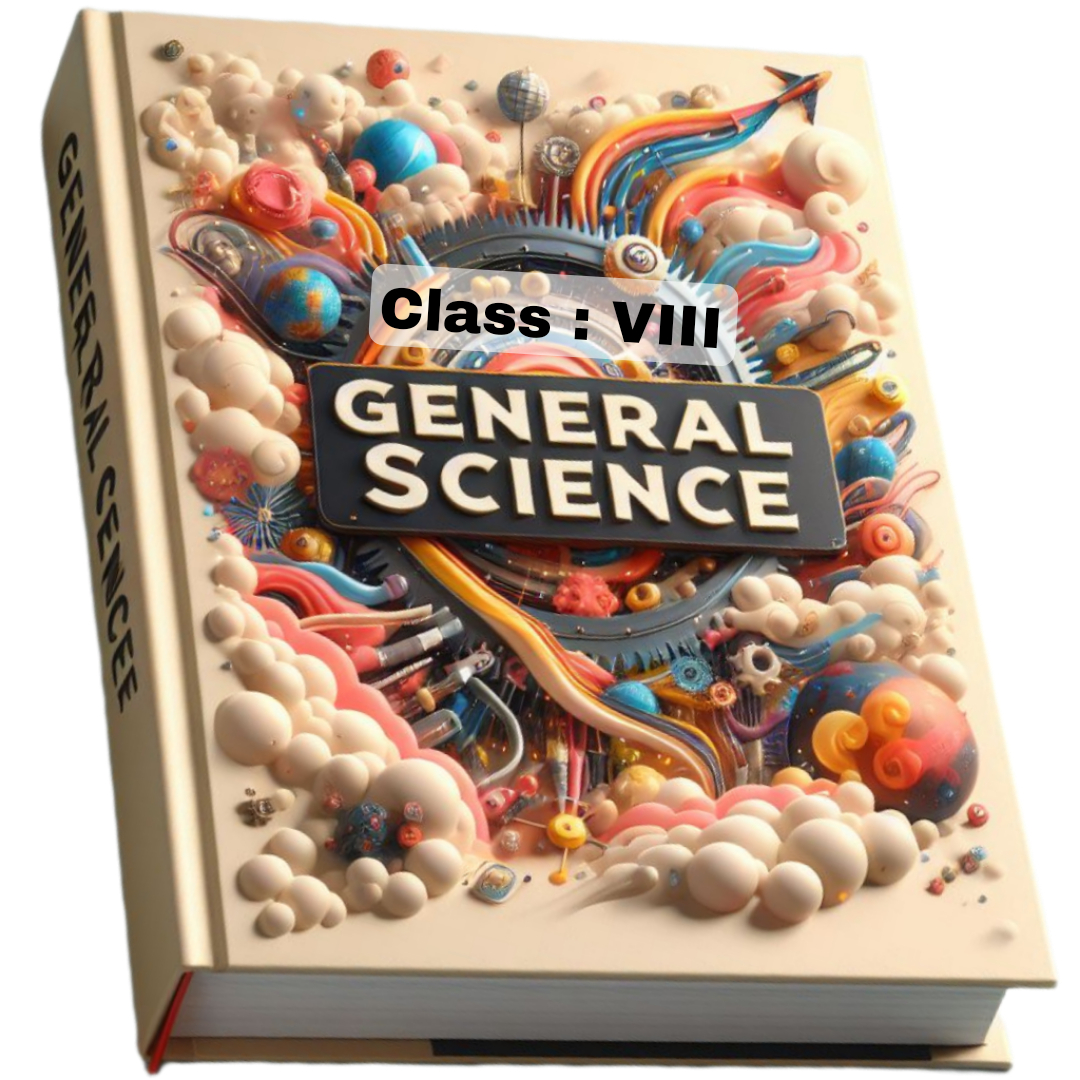Question 1. Critically examine Plato's views on justice.
Answer :📗 (in 701 words)
Plato’s views on justice, particularly as articulated in his seminal work The Republic, form a cornerstone of Western political thought. Justice, for Plato, is not merely a set of external laws or moral rules, but a profound principle that governs both the structure of society and the nature of the individual soul. His conception of justice, as articulated through the dialogues of The Republic, has been widely debated, both for its utopian vision and for its critique of individualism.
At the heart of Plato’s theory of justice is the idea of the ideal state, which he posits as a harmonious structure in which each part of society performs its function without interference. According to Plato, justice in the state is achieved when the three distinct classes—rulers (philosopher-kings), warriors (auxiliaries), and producers (farmers, craftsmen, etc.)—work in harmony, each fulfilling its proper role. The rulers are the wise philosophers who govern based on knowledge and reason, the warriors protect the state, and the producers supply the needs of the community. Justice, for Plato, is a condition of social order where each class does its own work and does not meddle in the work of others.
Plato’s theory is famously encapsulated in the doctrine of "justice as doing one’s own work and not meddling with others." This is often referred to as the principle of one man, one function (or each person does their own job). In this sense, justice is not merely a matter of individuals adhering to rules or laws, but a deeper, metaphysical harmony in society. The notion of justice as harmony is further illustrated by Plato’s analogy of the tripartite soul. Just as the ideal state consists of three classes, the individual soul consists of three parts: reason, spirit, and appetite. For justice to prevail in the soul, reason must govern the spirit and appetite, much like how the philosopher-kings should govern the warriors and producers. Plato’s theory thus links the well-being of the individual to the well-being of the state, suggesting that the personal and political are deeply interconnected.
Critically, Plato’s concept of justice has drawn substantial criticism over the centuries. One of the primary criticisms is his hierarchical vision of society, which denies the possibility of social mobility. By assigning individuals to specific roles based on their nature and abilities, Plato arguably devalues the potential for individual freedom and choice. In his ideal state, personal desires and ambitions are subordinated to the needs of the community. Critics like Karl Popper, in his work The Open Society and Its Enemies, argue that Plato’s political philosophy represents a form of totalitarianism, where the freedom of the individual is sacrificed for the so-called good of the state.
Moreover, Plato’s vision of philosopher-kings, while idealistic, is also highly controversial. It assumes that a small elite group, possessing wisdom and knowledge, is capable of ruling justly for the benefit of all. This raises questions about the feasibility of such a system, as it is difficult to guarantee that those in power would be genuinely virtuous or disinterested in self-serving behavior. Modern political theorists, including John Locke and Thomas Hobbes, have raised concerns about the concentration of power in the hands of a few, warning that such systems are prone to corruption and tyranny.
In addition, Plato’s dismissal of democracy, as seen in his critique of Athenian democracy in The Republic, has been criticized for its elitist undertones. Plato viewed democracy as a system where the unwise majority could undermine the good governance of the state. While his critique of Athenian democracy is rooted in his observations of its flaws—such as the trial and execution of Socrates—many modern scholars argue that Plato’s rejection of democracy is too sweeping and ignores the potential for democratic institutions to promote justice through reasoned debate and popular participation.
In conclusion, Plato’s views on justice, as articulated in The Republic, offer a compelling vision of a harmonious society governed by wisdom and order. However, his idealism, hierarchical approach, and suspicion of democracy present significant challenges to its practical application. While Plato’s work continues to influence political philosophy, his conception of justice remains a subject of critical examination, particularly regarding its implications for individual liberty, political power, and social equality.
References :
- Plato. The Republic. Translated by Benjamin Jowett, Dover Publications, 2000.
- Popper, Karl. The Open Society and Its Enemies. Routledge, 2013.
- Fine, K. (Ed.). The Oxford Handbook of Plato. Oxford University Press, 2008.
Question 2. Discuss St. Augustine's contribution to medieval political thought.
Answer :📗 (in 761 words)
St. Augustine of Hippo (354-430 AD) is widely regarded as one of the most influential thinkers in the development of Western political thought, particularly in the context of medieval political theory. His contributions, especially as articulated in works like The City of God, laid the groundwork for much of the medieval understanding of politics, law, and the relationship between religion and the state. Augustine’s thought was deeply shaped by the theological and philosophical context of his time, and his ideas were pivotal in merging Christian doctrine with Roman political traditions, creating a distinctive framework for medieval political philosophy.
One of Augustine’s most significant contributions to medieval political thought was his conceptualization of the two cities: the City of God (Civitas Dei) and the City of Man (Civitas Humana). This distinction, introduced in The City of God, is central to Augustine’s political philosophy. The City of God represents the community of those who live according to God’s will and pursue eternal salvation, while the City of Man refers to the earthly realm, characterized by sin, temporal power, and human imperfection. Augustine’s central argument is that the two cities are interrelated but distinct, with the City of God representing the ultimate, divine order and the City of Man serving as a temporary, imperfect institution.
This dualism between the sacred and the secular would have profound implications for medieval political thought, influencing later thinkers such as Thomas Aquinas. For Augustine, while the City of Man was necessary for maintaining peace and order in a fallen world, it was not the ultimate goal of human existence. The Christian ruler, according to Augustine, should recognize that political power is not an end in itself but a means to secure the common good and create conditions that allow individuals to achieve salvation. Thus, Augustine's thought emphasizes the role of the state in maintaining peace and justice, but it also acknowledges that the state's power is limited and must ultimately serve divine purposes.
Augustine's views on the relationship between church and state were another major contribution to medieval political theory. He believed that the earthly political authority was subordinate to the authority of the Church, which, as the divine institution, had the ultimate responsibility for guiding souls to salvation. In this respect, Augustine’s thought reinforced the idea that political power should be exercised in accordance with Christian values. However, Augustine did not advocate for a theocratic state; instead, he supported a form of cooperation between the Church and the state, with the Church having spiritual authority and the state having temporal authority. This division of responsibilities laid the foundation for later medieval political models, such as those developed by thinkers like Pope Gregory VII and Aquinas, who would continue to explore the proper relationship between the sacred and the secular.
Another key aspect of Augustine’s political thought was his doctrine of just war (bellum iustum), which became one of the most influential aspects of medieval and later Christian political philosophy. In The City of God, Augustine argues that war could be morally justified if it was waged for the purpose of securing peace and justice. For Augustine, a just war must meet certain criteria, including having a legitimate authority declare it, fighting for a just cause, and using proportional means. This concept of just war provided a theological and moral framework for medieval rulers who sought to justify military action, both within Christendom and beyond.
Augustine's ideas also shaped medieval views on human nature and the role of government. His belief in the inherent sinfulness of humanity, stemming from the Fall, meant that human beings were not capable of achieving perfect justice on their own. As a result, Augustine believed that political authorities were necessary to restrain human vice and prevent chaos. Government, therefore, was a necessary evil in a fallen world. However, Augustine’s view of political authority was not purely cynical; he also believed that rulers could play a role in promoting the common good and creating conditions for peace.
In conclusion, St. Augustine’s contributions to medieval political thought were vast and profound. His theological vision, which fused Christian doctrine with political theory, shaped the medieval understanding of the relationship between religion and politics. Augustine’s concepts of the City of God and the City of Man, the just war, and the role of government in a fallen world provided a framework for later medieval thinkers to address the challenges of governance, law, and morality. Through his work, Augustine helped establish a Christian vision of political life that would deeply influence European political theory for centuries to come.
References:
- Augustine of Hippo. The City of God. Translated by Marcus Dods, Modern Library, 2000.
- Brown, Peter. Augustine of Hippo: A Biography. University of California Press, 2000.
- MacCulloch, Diarmaid. A History of Christianity: The First Three Thousand Years. Viking, 2011.
- Stump, Eleonore. Aquinas. Routledge, 2003.
Question 3. Critically discuss the views of Locke and Rousseau on liberalism and individualism.
Answer :📗 (in 632 words)
Locke also stresses the importance of individualism, particularly in terms of property rights. According to Locke, individuals have a natural right to own property, which they acquire by mixing their labor with the natural world. Property, for Locke, is an extension of individual freedom, and its protection is one of the primary duties of government. Locke’s vision of liberalism is one that supports economic freedom, personal autonomy, and a government that exists to safeguard individual rights.
Rousseau's solution is his concept of the general will, a collective will that transcends individual desires in order to promote the common good. For Rousseau, true freedom is found not in the pursuit of individual desires but in adherence to the general will of the community. Unlike Locke, who believes that individual freedom is paramount, Rousseau asserts that liberty is achieved through participation in the collective decisions of society, which requires individuals to subordinate their private interests to the public good.
References :
- Locke, John. Two Treatises of Government. 1689.
- Rousseau, Jean-Jacques. The Social Contract. 1762.
Question 4. Briefly discuss Foucault's concept of knowledge as power.
Answer :📗 (in 840 words)
Foucault’s notion of power is not limited to visible coercion. Rather, it operates through subtle means such as surveillance, discipline, and normalization. The concept of “bio-power” is central to Foucault’s analysis, referring to the ways in which power regulates populations through social institutions like hospitals, schools, and prisons. These institutions shape what is considered “normal” and “abnormal,” exerting power over individuals by defining knowledge about them.
This idea is best captured in his concept of "power/knowledge," a term that underscores the indivisible link between the two. In Foucault’s framework, knowledge creates the conditions in which power operates, and power, in turn, shapes knowledge. For example, the development of disciplines like psychiatry, criminology, and medicine, according to Foucault, is not just about providing objective knowledge but also about creating categories of normality and abnormality that reinforce power relations. Those who hold knowledge in these fields—doctors, psychologists, and other experts—play a central role in exerting social control by defining norms and shaping behavior.
Foucault also examines how knowledge about individuals (e.g., in medicine, education, or the legal system) helps institutions manage and control populations. These knowledge systems make people more predictable, docile, and compliant to social norms.
References :
- Foucault, M. (1975). Discipline and Punish: The Birth of the Prison. Pantheon Books.
- Foucault, M. (1980). Power/Knowledge: Selected Interviews and Other Writings 1972–1977. Pantheon Books.
Question 5. Explain the concept of sustainable development. Analyze the challenges and benefits associated with implementing sustainable practices in urban and rural areas.
Answer :📗 (in 618 words)
Challenges of Implementing Sustainable Practice :
Economic Constraints :One of the primary challenges in both urban and rural areas is the high initial cost of sustainable technologies. Urban areas, in particular, face the challenge of investing in infrastructure such as renewable energy systems, public transportation, and energy-efficient buildings. For economically disadvantaged communities, the costs of implementing such practices can be prohibitive. Rural areas also face challenges in adopting sustainable farming methods, which may require investment in new technologies and techniques.
Improved Quality of Life : Sustainable— practices contribute to healthier and more resilient communities. In cities, green spaces, clean air, and efficient public transportation can improve the quality of life. In rural areas, sustainable agriculture practices can lead to healthier food production, reduce soil erosion, and promote long-term land health.
Social Inclusion and Equity : Sustainable— development can reduce social inequalities by promoting inclusive growth. By providing access to clean energy, clean water, and sustainable livelihoods, marginalized communities in both urban and rural areas can improve their living standards and break the cycle of poverty.
References :
- Brundtland, G. H. (1987). Our Common Future: Report of the World Commission on Environment and Development. Oxford University Press.
- United Nations. (2015). Transforming our world: The 2030 Agenda for Sustainable Development. United Nations.
Updated on 27th November 2024By :- J.A.C (B.Sc Honours | Web/App Developer.)

.jpg)

.jpg)













0 Comments